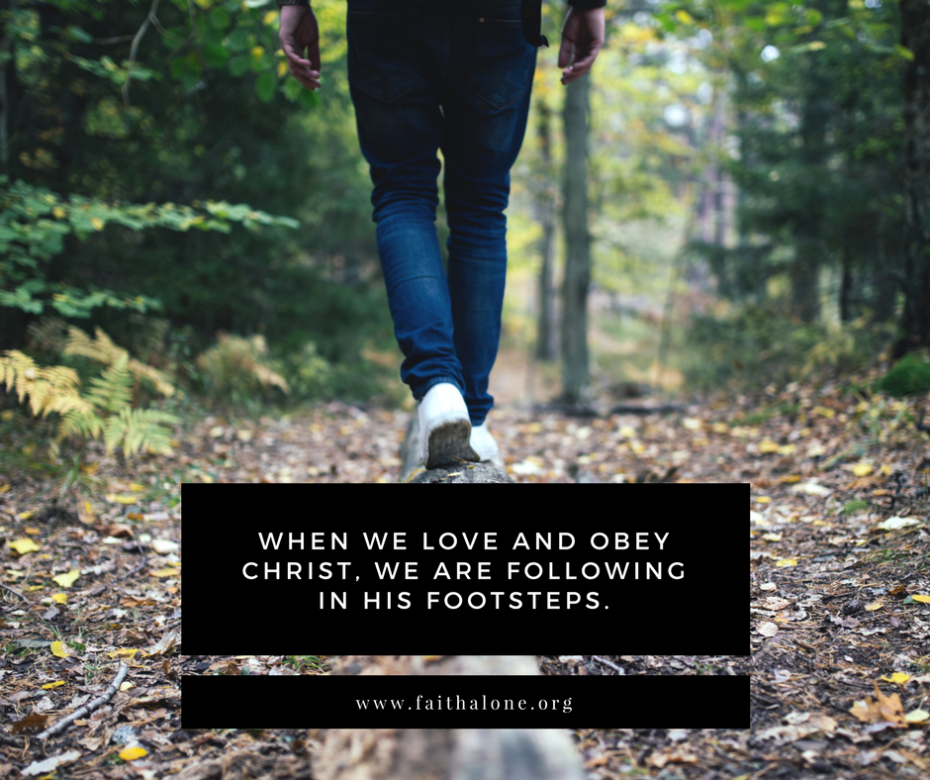“But that the world may know that I love the Father; and as the Father gave me commandment, even so I do. Arise, let us go hence” (John 14:31).
In John 14, Jesus is in the upper room with the disciples. They are all believers. Judas has already left the room. Jesus tells these believers that if they love Him, they will keep His commandments. He also says that if they didn’t love Him, they wouldn’t keep His commandments (14:23-24).
It is both strange and sad that many have taught that all believers love the Lord and all believers, therefore, live godly lives by keeping Christ’s commandments. Just today I read a devotion on a blog by a very popular Lordship Salvation teacher who used John 14 to make that very point.
Could anything be more obvious than that Jesus is giving the disciples a choice? Why would He give these two options to these believers if all of them were going to love and obey Him? It would be like walking into a room of people and commanding them to breathe.
No, it is clear that the eleven disciples can either love Him or choose not to love Him. They can either obey the things He taught them, or they can disobey.
If it was true for the 11 disciples who were with Jesus in the upper room—people like Peter and John—it is certainly true for us.
Why would a believer choose to love and obey Christ? Of course, many would say that if you don’t, you are going to hell because you are not a “true” believer. They do that because they think the NT is a book that tells us how to go to heaven and how to know if we are doing so. That is a serious error, as John 14 shows.
But if a “true” believer can choose to disobey Christ, what is the cost if he chooses to do just that? It is difficult to obey the things that Christ commanded us, so why pay the price if you will be in the Kingdom anyway?
Here in John 14, in the words of the Lord, we find two very good reasons.
First, in vv 21 and 23 Jesus says that the one who loves Him and obeys Him will have as his reward that He and His Father will “manifest” themselves to him and make their “abode” with him. Christ will reveal more of Himself to the obedient believer. That is what “manifest” means. This is described as Christ and His Father being at home with the believer (“abode”). This word for abode only occurs here and in v 2 in all of the NT, where Jesus says that in His Father’s house there are many “mansions.” The point here is that the obedient believer will have an experience of living with the Father and Son that will be a foretaste of what it will be like in eternity.
What a great motivation to love and obey Christ! That believer will know more about Christ and will live a life that can be characterized as having Christ and the Father making themselves at home with that believer.
But there is another reason to live that kind of life. In the last verse of chapter 14 (v 31) Jesus says that He loves the Father and that He does what the Father has commanded Him. He has been obedient to the Father. This is only place in the NT where Jesus says, “I love the Father.”
Of course, when Jesus leaves the upper room, He heads to the garden where He will be arrested and eventually taken to the cross. He knows these things. But He will be obedient to the Father. The last words of chapter 14 are: “Arise, let us go hence.”
Jesus is saying, “let me go to the cross now.” He did it out of love and obedience to the Father. The lesson is simple. When we love and obey Christ, we are following in His footsteps.


